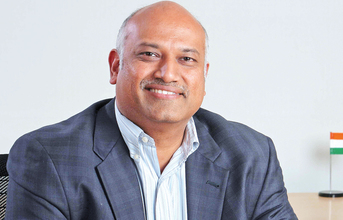
Special economic zones (SEZs)
There are special economic zones (SEZs) which should be leveraged to make it an important hub in the global supply chain on aerospace and defence production. India's first SEZ for aerospace at Belgaum in south Karnataka state was inaugurated in November 2009.
The government is considering the establishment of dedicated SEZs on similar lines catering specifically to the defence sector along the lines of information technology, automobile and other specialised SEZs.
This will provide manufacturers and service providers - especially foreign companies - a suitable tax-friendly environment and also aid in promoting exports of products and services.
We believe a business climate that fosters entrepreneurship and promotes new business ventures and expansion of existing ventures with stability and clarity is the best way to create new employment opportunities. Administrative and bureaucratic procedures should be simple, transparent and time-bound to encourage defence companies.
Increased PPP
Domestic defence manufacturing is dominated by defence public sector undertakings (DPSU) and Ordnance Factories Board (OFB), which together have an 80-90 percent share of domestic defence manufacturing.
However, major Indian industrial houses such as the Tata Group, Larsen & Toubro, Reliance, Godrej, Mahindra, Kirloskar Brothers and Walchandnagar Industries have diversified into the defence sector, forming joint ventures with foreign companies for both strategic and produce-specific projects.
These companies are increasingly getting enthusiastic about playing a larger role in contributing to the growth and looking beyond domestic shores at export markets after sufficient experience has been gained in particular areas.
The need of the hour is to combine the competencies of public and private sectors. Enhancing technological and manufacturing thresholds will spread the costs of domestic development and attract funds needed to sustain high-cost research and development. The private sector participation will create additional capability in India to manufacture aircraft so that the requirement, both of the military and civil sectors, could be met in a more cost-effective manner and in shorter time frames.
Working with an open mind, the ministry of defence should explore all viable approaches like formation of consortia, joint ventures and public private partnerships for optimum results. Similarly, the potential of academia, research and development institutions, and reputed technical and scientific organisations should be made use of.
The offset policy (which stipulates the mandatory offset requirement of a minimum 30 per cent for procurement of defence equipment in excess of Rs 300 crore) introduced in the capital purchase agreements with foreign companies will ensure that an eco-system of suppliers is built domestically.
(Continued on the next page)


























